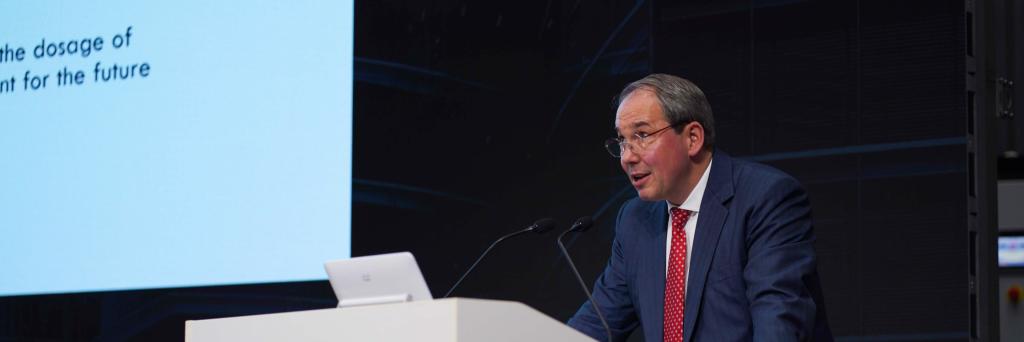In the Introduction to this lecture, Professor Marie-Laure Salles, The Institute’s Director paraphrased German philosopher Immanuel Kant: “It is not peace that is perpetual, but the struggle for peace. Peace is a utopia, but a utopia that should always guide us.”
Focusing on the context of a changing strategic landscape, Prof Wennmann reflected on the fundamentals and frontlines of peace mediation, and on how this sector should adapt to an era of radical uncertainty. “The era is ‘radical’ because change is fast and happens at scale; it is ‘uncertain’ because present instruments and approaches to manage this change are either inadequate or non-existent.” The world will “not be able to securitise or militarise its way out of the array of interlocking crises” and peace mediation has a lot to offer as a strategic alternative.
Explaining the practice of peace mediation, Prof Wennmann clarified that “Mediation is one of various instruments in the toolbox of conflict management and transformation. It builds on the parties’ voluntary consent to the process, professional, impartial and mutually accepted accompaniment by third parties, and mutual ownership of the outcomes by the conflict parties.”
Based on a review of the institutional footprint, mediation support practices, as well as the sector’s funding and results, Prof Wennmann reflected on the adaptation of the mediation sectors. First, he argued that adaptation is already happening. The sector assists government actors and agencies in the production of results that can only emerge outside the realm of traditional diplomacy. Secondly, there is also a degree of continuity, especially as civil war or terror dynamics continue, and the sector can activate its full range of mediation support activities. Thirdly, he argued that there are opportunities for change in the realm of communication – to demystify conflict dynamics and opportunities for peace – and around partnering with like-minded professional networks. Finally, conflict dynamics of the interlocking crises of the era of radical uncertainty require the diffusion of peace mediation practices within local conflict systems. This is akin to creating a federation of peace – or an International Federation of Peace like the International Federation of the Red Cross (IFRC) in the humanitarian sector – that supports local peace mediation societies.
These reflections build on an understating of peace as an expedition through a mountain range. “A peace agreement is a stage on this pathway but should not be mistaken for the permanent human effort required to enroot dialogue, negotiation and compromise as the foundation for politics.”
The lecture was followed by a discussion between Prof Wennmann and Itonde Kakoma, President of Interpeace.
Prof Wennmann dedicated the lecture to his friend and colleague, Professor Mohamed Mahmoud Ould Mohamedou who tragically passed away the previous day, on 17 September.



